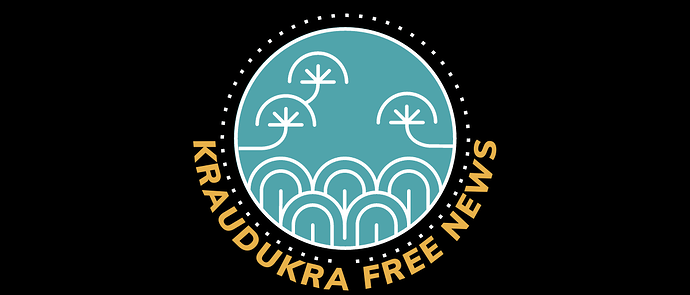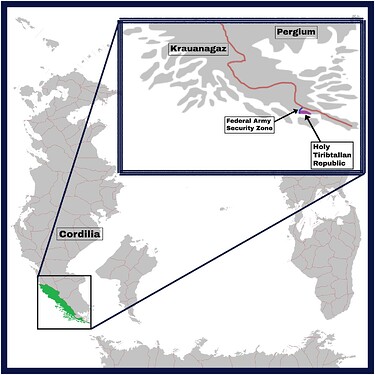Explosion Rocks Zuhlgani-Guarded Aid Hub in Southern Mitallduk Amid Growing Humanitarian Crisis
Yattahar, Mitallduk— A devastating explosion tore through a humanitarian aid distribution point yesterday, sending shockwaves through one of the most vulnerable regions of Mitallduk, already bracing under severe humanitarian strain. The site, operated and defended by Zuhlgani security forces, was struck in an attack that left dozens of civilians and aid workers dead or wounded.
Eyewitnesses described a catastrophic scene, “A massive fireball erupted, then gunfire raked through the crowd as people tried to flee,” reported a local villager who witnessed the explosion firsthand. Aid workers and refugees, many of whom had been waiting in line for vital medical supplies and food, were among those affected. At least 64 casualties have been confirmed, 30 fatalities and 34 injured, though officials warn the numbers may rise as rescue efforts continue.
No group has yet claimed responsibility for the attack, though Southern Mitallduk has been the site of increasing clashes between various resistance elements and Dominion-aligned security units, including Zuhlgani military forces.
Mitallduk continues to suffer from one of the gravest humanitarian crises in modern Cordilian memory. Recent reports estimate over 1.1 million internally displaced persons (IDPs) crammed into temporary shelters, as regional militarization, displacement, and disease bombard the already fragile environment. Displacement shelters remain at 200% capacity, with limited access to potable water, electricity, or healthcare.
A harmful surge of Cordilian Fever, a novel illness, has added to the devastation, with mortality rates in makeshift camps reported alarmingly higher than in urban centers. The situation worsened through June as Mitallduk received only 7% of much-needed WFRC-coordinated food aid despite hosting a larger percentage of the overall IDP population. This disparity has been linked to strained relations with neighboring donor states and logistical bottlenecks between national jurisdictions.
Aid logistics have been hampered by road insecurity, checkpoint restrictions, and sporadic violence, culminating in yesterday’s fatal attack. Agencies such as RestoreLife International and Doctors Without Borders have documented repeated delays and denials at numerous checkpoints, with convoys frequently redirected or turned back.
The World Forum’s humanitarian mission in Southern Cordilia denounced the attack. “We condemn this attack in the strongest possible terms,” said WF Regional Humanitarian Coordinator Lina Vashak. “Safe passage for aid distribution must be guaranteed. We call on all armed actors to refrain from targeting civilians and aid operations.”
While in a brief statement issued early today, Zuhlgani authorities condemned the “heinous assault” and vowed to intensify checkpoint security and investigative efforts. However, they stopped short of confirming specific protective measures to prevent future incidents. Some factions have criticized Zuhlgani forces’ presence at aid sites as making them de facto combat targets, arguing that “militarizing humanitarian hubs” invites attack, declaring that aid must be distributed in neutral spaces.
Humanitarian agencies warn the bombing may mark a dangerous tipping point in Mitallduk’s collapse. Without immediate intervention, the region risks descending into a deeper spiral of violence, scarcity, and displacement. Humanitarian groups are calling for guaranteed safe passage zones, ideally monitored by the WF and agreed upon by all armed factions. As well as demilitarizing aid hubs to ensure they remain apolitical and neutral.
NLL said in upcoming weeks they would be deploying rapid response medical units to remote areas with severe Cordilian Fever outbreaks that will bring vaccine transport and storage technologies to support emergent vaccination campaigns. CHRW reports that up to 40% of aid facilities currently lack functional cold-chain systems, jeopardizing future vaccine distribution.
As night fell over Yattahar, the injured continued to be rushed to nearby camps, caregivers scrambled to organize triage shelters, and families mourned their dead and missing. The region now faces a critical test: whether humanitarian principles can hold firm beneath armed conflict, or become yet another casualty in a war without mercy.




